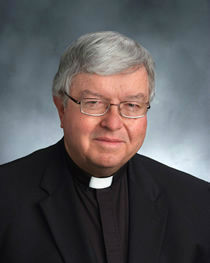
Faith
This imperative had the same root as the English word "mission"

Doyle
Q. In all of my 78 years (and with 16 years of Catholic education), I have never heard where the word "Mass" comes from to describe the Eucharist. (It seems like an odd word.) (Gambrills, Maryland)
A. The word "Mass" comes from the Latin word "missa." When Mass used to be celebrated commonly in Latin, the people were dismissed with the words, "Ite, missa est" -- which could be translated literally as, "Go, it has been sent."
This imperative had the same root as the English word "mission," and it indicated the Christian's responsibility to carry the fruits of the Eucharist out into the world in one's daily activities. It highlighted the fact that the dismissal at the end of Mass was not so much a conclusion as a starting point.
In the current English translation of the liturgy, there are four acceptable options for this dismissal rite. The one that I prefer personally -- because I think it best indicates this continuing mission -- is, "Go in peace, glorifying the Lord by your life."
(Questions may be sent to Father Kenneth Doyle at askfatherdoyle@gmail.com and 30 Columbia Circle Dr., Albany, New York 12203.)
- Father Kenneth Doyle is a columnist for Catholic News Service
Recent articles in the Faith & Family section
-
Holy Thursday and Good FridayFather Robert M. O'Grady
-
Faith is a verbArchbishop Richard G. Henning
-
Giving Mothers and Babies a Chance in the MissionsMaureen Crowley Heil
-
'The Chosen: Last Supper' premieres in Dallas, bringing Holy Week to the big screenFather Patrick Briscoe
-
Be free: Experiencing the promise of the Jubilee YearDr. R. Jared Staudt























